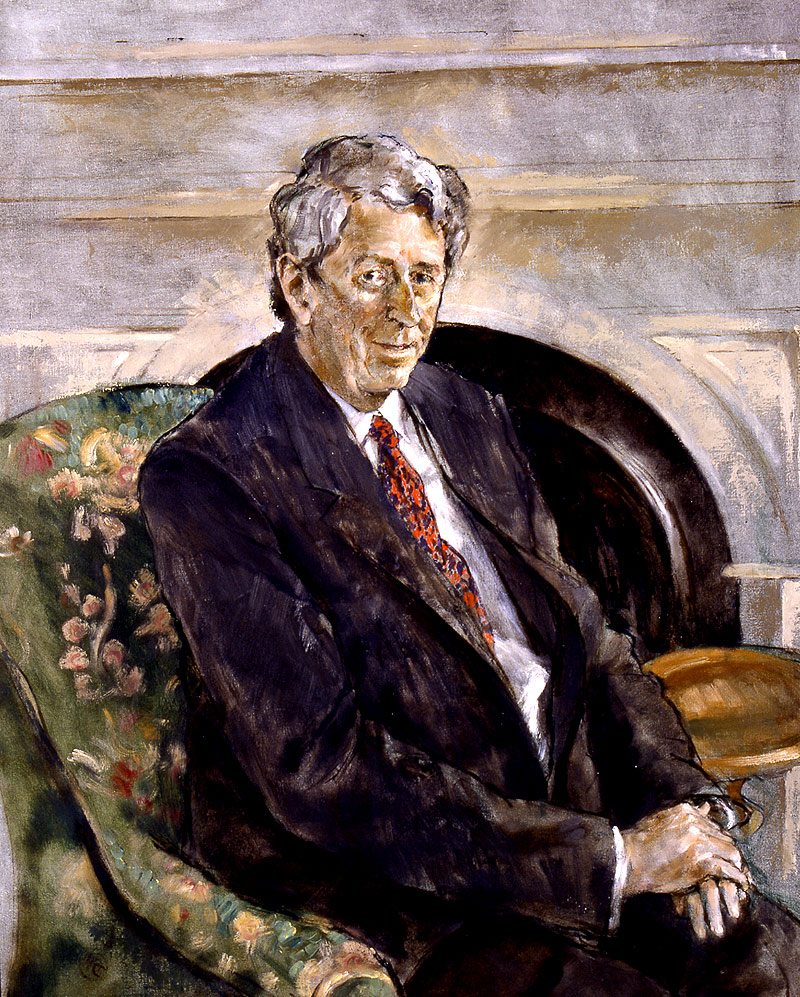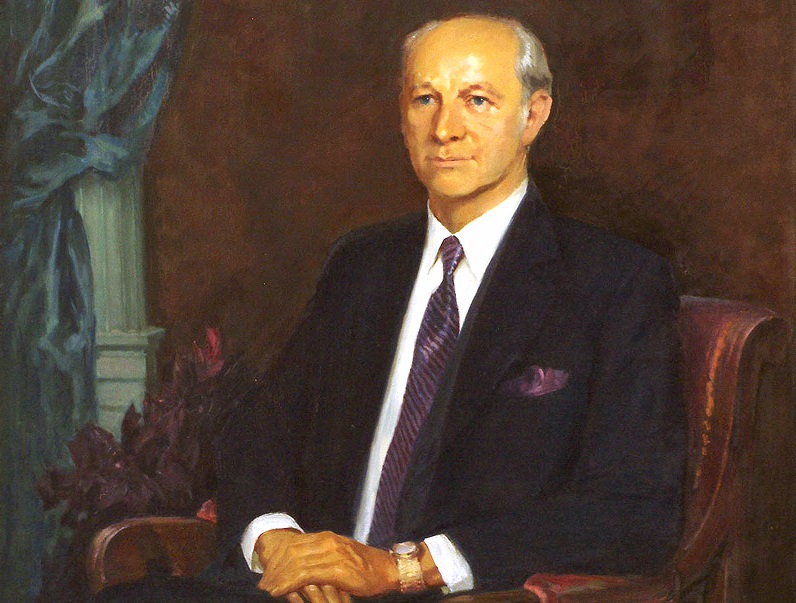On 9 May every year EU member states celebrate Europe Day. On the anniversary of the signing of the Schuman declaration in 1950, this is a day of reflection on the co-operation, prosperity and peace that has come about through the European project.
This year Europe Day will be the start of the European Year of Skills, putting skills at the heart of European policy debate. The day is also about getting citizens better acquainted with the EU's efforts to build a Europe that is green, digital and competitive, fair and skilled, as well as strong, resilient and safe.
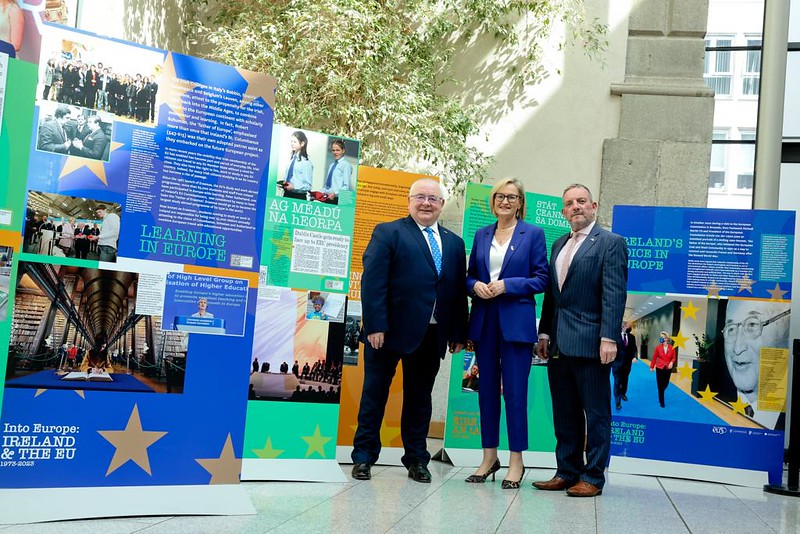
WATCH
Commissioner McGuinness addressing the Seanad on Europe Day
European Commissioner for Financial Services, Financial Stability and Capital Markets Union, Mairead McGuinness, speaks to Seanad Éireann about the EU's history, current challenges and its future.
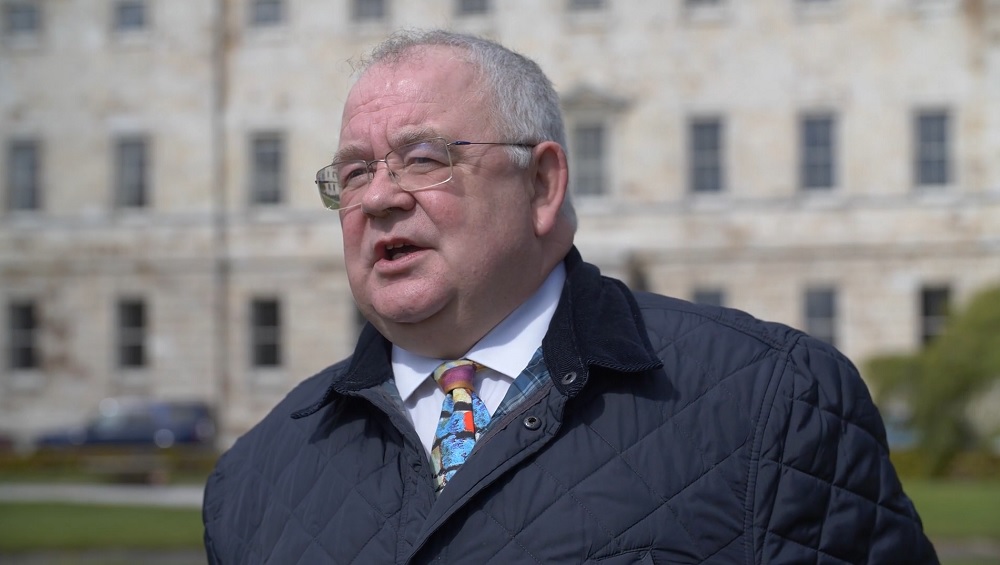
watch
The importance of our European identity
Our EU journey has seen many significant milestones since 1972 as we continue to evolve and mature in Europe.
As an introduction to celebrating Europe Day, hear the Ceann Comhairle, Deputy Seán Ó Fearghaíl, sharing his thoughts on the importance of being active members of the European Union.
Watch
Oireachtas TV | Strasbourg Special
This Oireachtas TV special presentation from the April plenary session at the European Parliament in Strasbourg has contributions from Irish MEPs illustrating their work in Parliament, including climate and financial concerns.
Notable events in Ireland's European journey
- 1973 | Ireland joins the European Economic Community
-
After several years of preparation and a previous application, Ireland signed the Treaty of Accession to the join the European Economic Community (EEC - now the European Union or EU) in 1972. As membership of the EEC resulted in the Oireachtas no longer being the sole law making power in the State, it was necessary to hold a referendum to amend the Constitution.
The referendum was held on the 10 May 1972. Four out of five people (83.09% of the electorate) voted in favour of the referendum. Turnout for the referendum was high at 70.3%. Ireland joined the EEC on 1 January 1973.
- 1974 | Anti-Discrimination (Pay) Act 1974
-
Ireland hosted its first Presidency of the Council of the European Communities from January to June 1975 under the leadership of Taoiseach Liam Cosgrave. The Equal Pay Directive (Council Directive 75/117/EEC) establishing the principle of equal pay for men and women was passed during the Presidency.
During the Presidency, agreement was reached to begin work on creating a passport union and common Community rights for European Community citizens. The former Taoiseach, Dr. Garrett FitzGerald, has said that the success of Ireland’s first European Presidency helped to developed Ireland’s credentials as a serious European player.
- 1986-1987 | Single European Act
-
On Christmas Eve 1986, President Patrick Hillery signed the European Communities (Amendment) Act 1986, bringing the provisions of the Single European Act into Irish law. However, that same day an injunction was successfully sought from the High Court preventing the Irish Government from ratifying the Treaty without first putting the matter to a referendum.
In April 1987, in Crotty v. An Taoiseach, the Supreme Court ruled that as the Single European Act “was a significant and decisive step along the path to a single European foreign policy” it could only be ratified by referendum.
On 26 May 1987 a referendum on the Single European Act was held. Seventy percent of the electorate voted in favour of it. Due to the judicial proceedings, Ireland missed the 1 January deadline for ratifying the Treaty. This delayed its entry into force across the entire EU.
Since the Supreme Court decision in Crotty v. An Taoiseach, every European Treaty has been put to a referendum in Ireland.
- 1992 | Treaty on European Union
-
The European Economic Community (EEC) became the European Union (EU) in 1993 under the Maastricht Treaty (formally the Treaty on European Union). Ireland held a referendum on the Maastricht Treaty on 18 June 1992. The referendum was passed with 69.1% of the electorate voting "yes".
The Maastricht Treaty paved the way for the creation of an Economic and Monetary Union (EMU) comprising some, but not all, EU member states. This is now known as the eurozone or euro area.
- 2008-2009 | Treaty of Lisbon
-
On the 12 June 2008, Ireland held a referendum on the Treaty of Lisbon. The referendum was defeated with 53.4% of the electorate voting "no". Ireland was the only member state to hold a referendum on the treaty and its rejection took the EU by surprise.
Issues contributing to its defeat included a lack of knowledge about the treaty, the loss of a permanent EU Commissioner and concerns about a loss of national competency over issues such as neutrality and national tax rates.
In response to the rejection of the treaty by the Irish electorate, the Irish Government obtained a number of guarantees from EU leaders. These included a commitment that the treaty would not affect Irish law or policy on certain issues such as neutrality or tax. In addition, member states would retain a permanent EU Commissioner.
A successful second referendum on the treaty was held on 2 October 2009, with 67.1% of the electorate voting "yes".
- 2012 | Fiscal Stability Treaty
-
In March 2012, the Treaty on Stability, Coordination and Governance, otherwise known as the Fiscal Stability Treaty, was signed by 25 member states. Initially the treaty was negotiated as a form of enhanced co-operation between member states as the Czech Republic and United Kingdom did not participate in the treaty. The Irish people passed the treaty in a referendum held on 31 May 2012.
Title III of the Treaty established a series of fiscal rules, known as the Fiscal Compact. These rules oblige contracting parties to maintain a balanced budget (defined as a budget deficit not exceeding 3% of GDP) and introduces a requirement that a state’s structural deficit does not exceed a country-specific medium-term budgetary objective, or is on a path to meeting this objective.
- 2016 | United Kingdom referendum on European Union membership
-
Following a referendum held on 23 June 2016, the British people voted to leave the European Union. On 29 March 2017, the formal notification under Article 50 of the Treaty on European Union was presented by the United Kingdom to the European Council. This was followed by negotiations on the terms of the United Kingdom’s withdrawal, which focused heavily on the rights of EU and UK citizens, the financial settlement for the United Kingdom’s withdrawal and arrangements for avoiding a hard border on the island of Ireland.
- 2022 | Irish gains full status as an official and working language
-
On 1 January 2022, a derogation limiting the amount of material published by the EU institutions that could be translated into Irish expired. This had been in place since 2007 and was gradually reduced since 2015. As a result, Irish is now on an equal footing to the other 23 official languages of the EU, with full status as an official and working language.
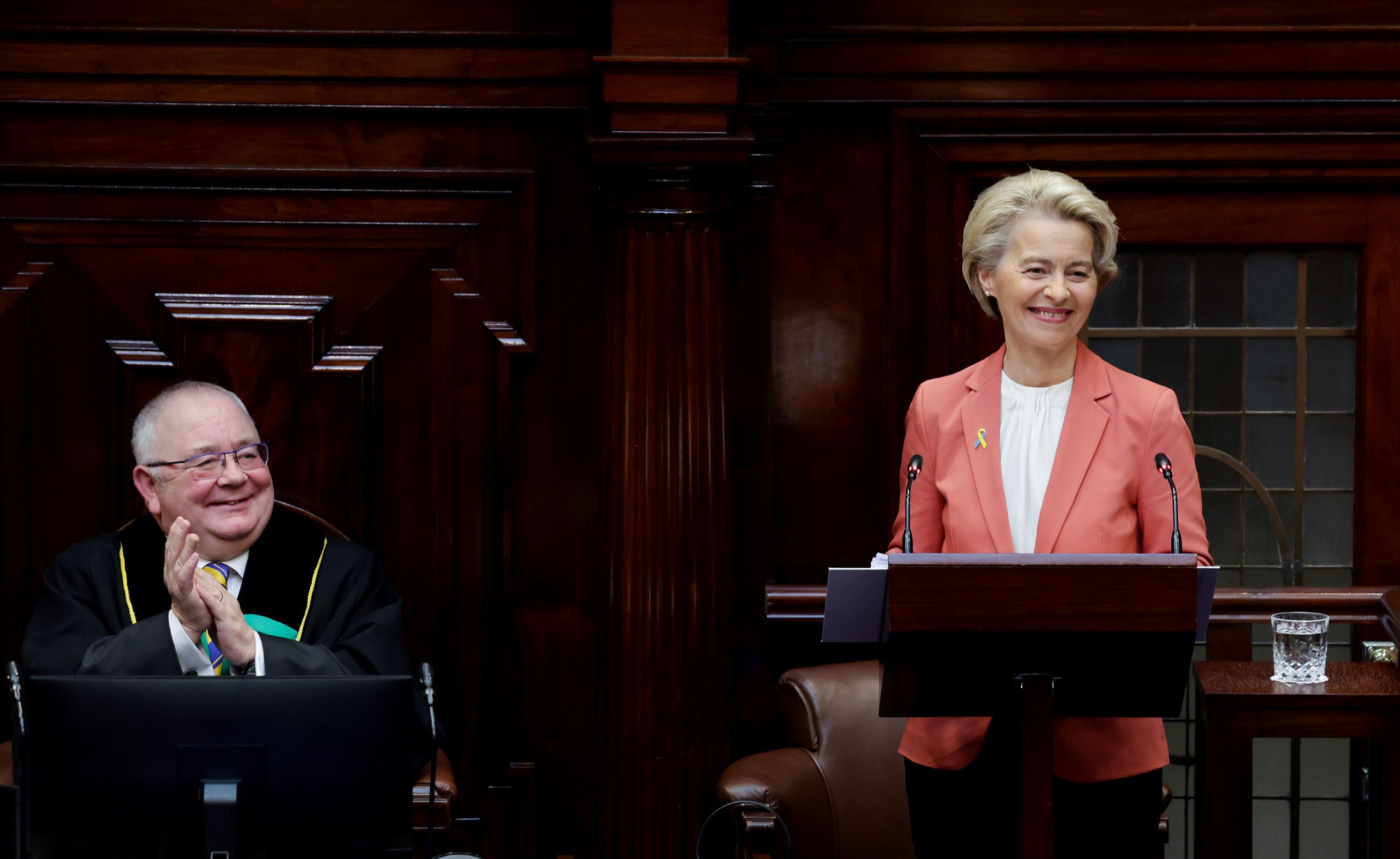
European Commission
President of the European Commission
Watch the special presentation of European Commission President Ursula von der Leyen addressing a joint sitting of the Houses in December 2022.
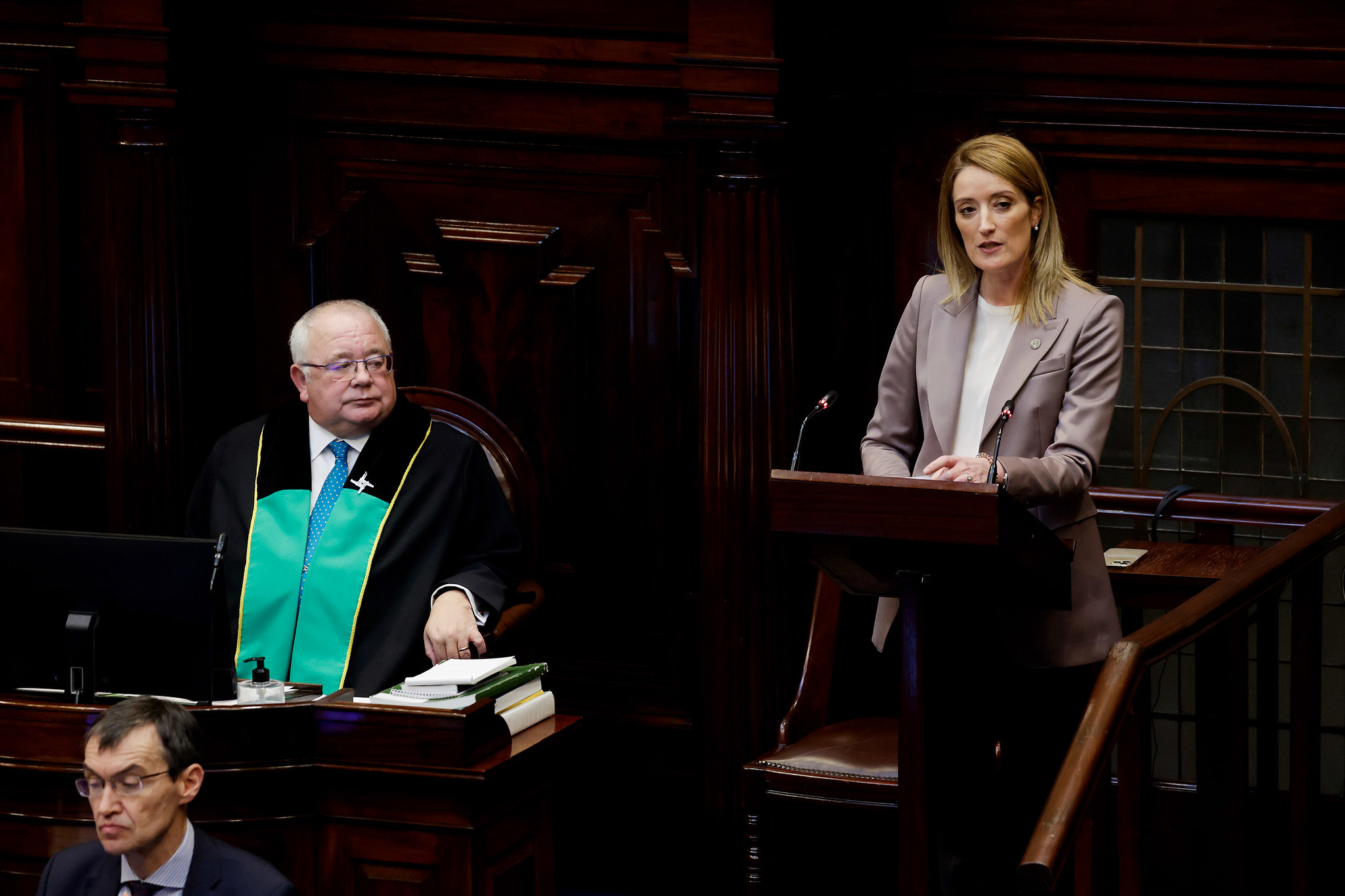
European Parliament
President of the European Parliament
Watch a special presentation covering the address by European Parliament President Roberta Metsola to a joint sitting of the Houses in February 2023.
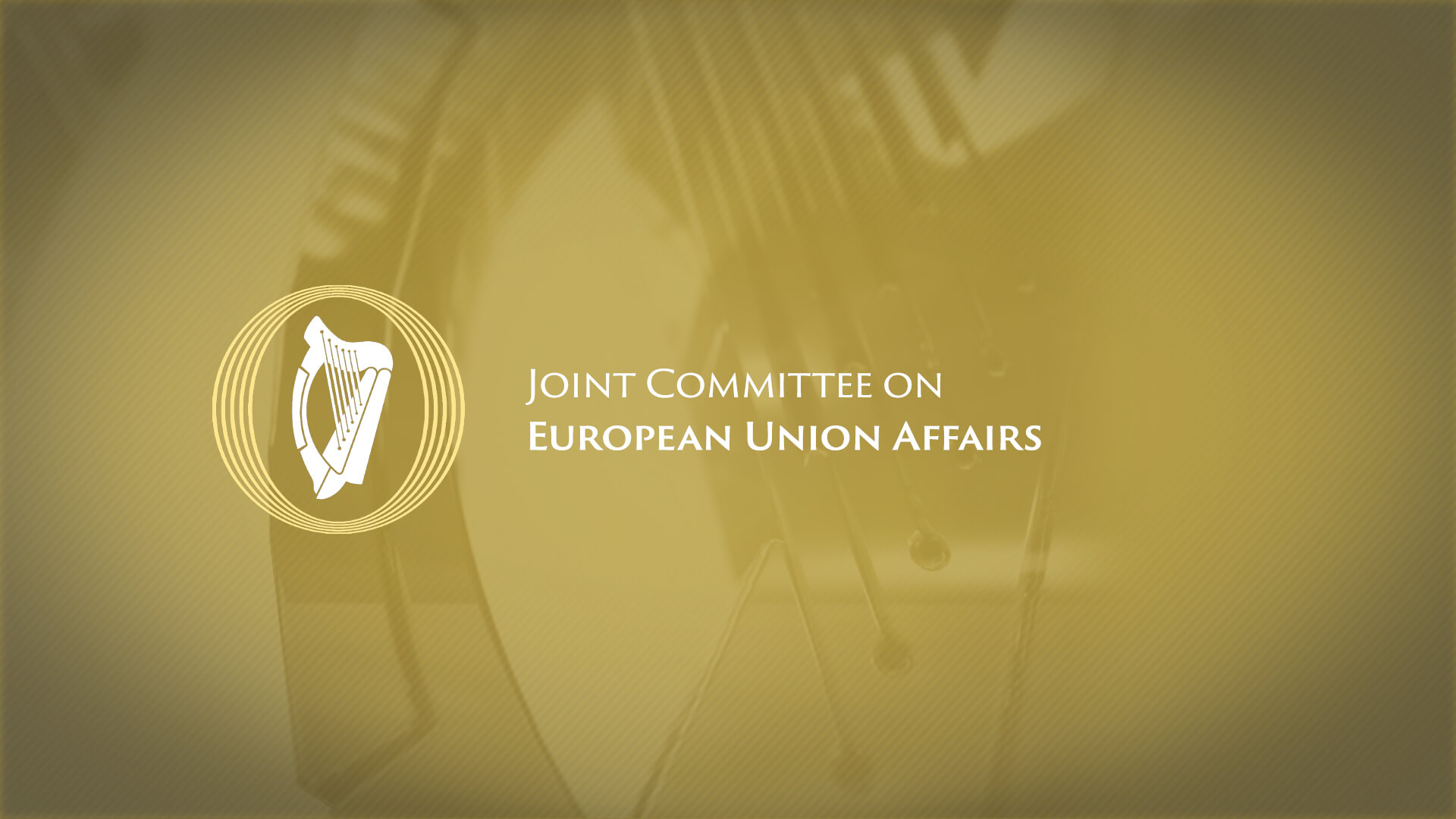
Watch
50 years of EU membership
As part of a wider engagement marking a half century of Ireland's participation in a European community, the Committee on European Union Affairs reflects on what Ireland's participation in the European project has done for the country since 1972.
What do we think about Europe?
The European Commission Representation in Ireland has published the 2022-2023 Winter Eurobarometer Report for Ireland.
The report focuses covers three core themes: trust in European Institutions and EU direction for the future; important contextual issues including key local concerns such as housing and the cost of living, the Russian invasion of Ukraine, energy supply and political leanings; and the Media.
- 74% of Irish people have a positive view of the EU, up 4 percentage points on summer 2022 and the highest across the EU27.
- 84% of Irish citizens are optimistic about the future of the EU, the highest across the EU27.
- 61% of Irish people trust the EU, up 3 percentage points from summer 2022 and well above the EU27 average of 47%.
- 63% of Irish people claim to feel informed on European matters,
- For Irish people, the most important issue facing Ireland at the moment is housing with 52% citing this as a key concern.
EEC membership, 14 July 1966
“If the Government fail to pursue this aim as thoroughly and as efficiently as we think is desirable, we will be pressing them from behind…It will do no harm to our position in Brussels and in this country if it is seen that this House is concerned about this matter.”
EEC membership, 21 March 1972
“Surely it is self-evident that if we were to remain outside the Community we would be conferring on the Border the status of a frontier, both economic and political, between ourselves and the rest of Europe.”
Further reading
Learn more about the EU institutions, Ireland's relationship with the EU and the 50th anniversary of Ireland's referendum to join the EU in 1972.


